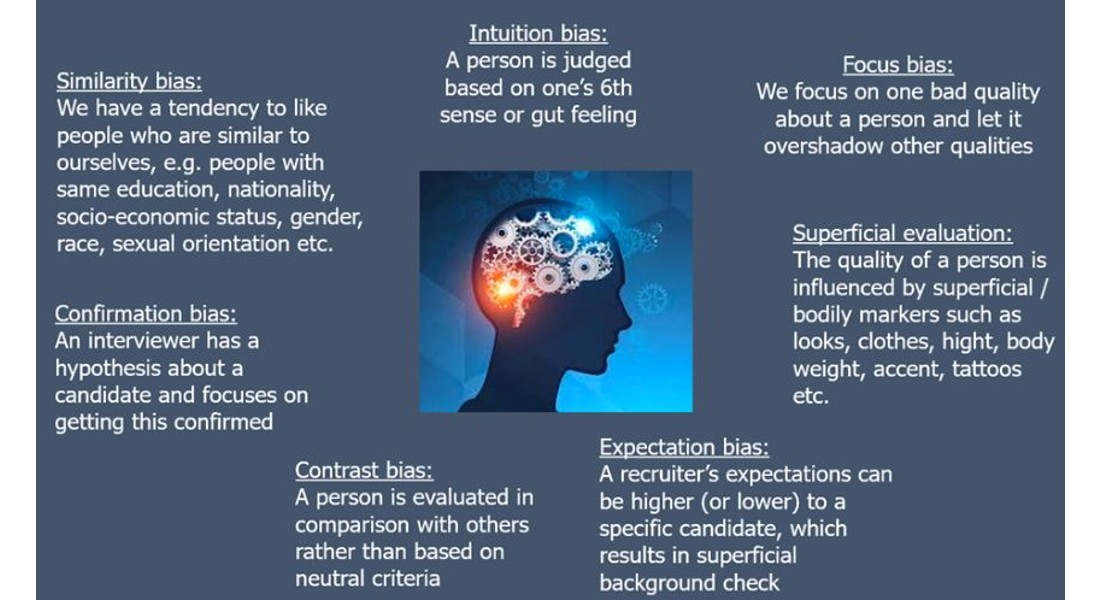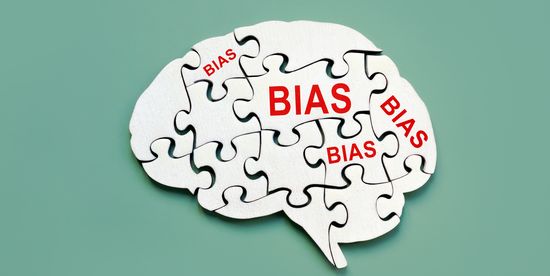Know Your Biases
We are all unconsciously biased in the way we process information, and how we perceive and relate to people. Our biases are often culturally defined and include our views and opinions of people based on gender, race, age, weight, sexual orientation, physical ability, social class, and other characteristics.
Unconscious biases are often incompatible with our conscious values! Consequently, when we are tired or distracted, our brains tend to take the “easy way out" and act on unconscious biases. The good news is that unconscious bias can be counteracted. Read about how unconsious bias can be countaracted at at an institutional and individual level in the box to the right.
The schematics below highlighting 7 types of very common unconscious biases as highlighted in the Globe diversity workshop presented by Professor Sara Louise Muhr. They are all problematic in an interview process -unless we are aware of them.

Try the Implicit Association Tool
The Implicit Association Tool, can illuminate our biases along several demographic axes (There are several such tests available). The here suggested test is developed by ProjectImplicit:
You might be surprised by what you find!

Unconscious bias can be counteracted!
At an institutional level:
-
Develop concrete criteria for performance reviews and hiring assessments
-
Offer training to management and staff designed help recognize and combat bias
-
Conduct surveys and CV reviews to evaluate systematic bias within organizations
-
Understand the nature of bias
-
Seek out discussions with people from socially dissimilar groups
-
Work to be more aware of our own biases
